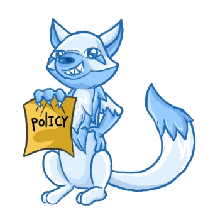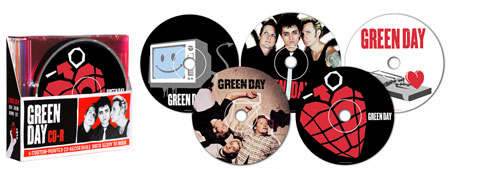 The other day my friend Jess asked me, “How did you learn so much at such a young age?”
The other day my friend Jess asked me, “How did you learn so much at such a young age?”
And I realized something: I get that question a lot.
Now, while I’m not claiming to be brilliant, nor am I claiming to be some sort of genius, I DID do some serious thinking on my answer(s) to that question.
So, here’s (yet another) one of my ridiculously long lists:
38 Ways to Speed Up Your Learning Curve, Even If You’re Not Old Enough to Rent a Car
1. Develop an attitude of Life Long Learning.
2. Whatever industry you work in, whatever area of expertise you seek to master, read every single book ever written about it. I remember early in my career, one of my mentors said, “You don’t have the ‘right to write’ a book on a certain topic unless you’ve read every other book on that topic.” Well, OK then.
3. So, read two of those books every week. You should be done in about a year.
4. Buy lunches for Big Shots in your industry. Ask them great questions. Take even greater notes. Then compile all of your notes into one main document that you update and review weekly.
5. Buy lunches for Non-Big Shots in your industry, then repeat everything I just said #4.
6. Go to every personal development/motivational seminar that comes through town.
7. The best swimmers are always in the pool. Figure out where you pool is, then go swimming every single day.
8. PRACTICE. Larry Bird shot 100 free throws a day. What are you going to do?
9. Write. Write. Write. Writing is the basis of all wealth. Write down everything you learn or experience. Call it a journal, a blog, a diary, whatever. Write everything down. If you don’t write it down, it never happened. (Thanks for that one, Greg Peters.)
10. Regularly read books about creativity, creative thinking, creative people, creative ideas, etc.
11. Screw up. A lot.
12. Get more than one mentor. Hell, get ten of ‘em!
13. Did I say, “write” already? I think so. But in the words of Mr. Kinney, my freshman history teacher, “You don’t know it unless you can write it.”
14. Ask people, “What mistakes did you make when you were starting out?”
15. Learn something new each day. Yes, an old cliché. But here’s the catch: start a Learnal. Not a Journal. A Learnal. A daily journal of things you learned. Try that for a month and you’ll be amazed at how much smarter you’ve become!
16. Go to Borders once a month. Grab about fifty or so books that look interesting. Sit down with a big fat legal pad. Read through the books and take notes for a few hours. (You should probably buy a hot chocolate or something, so you don’t feel like you’re stealing.)
17. Two words: MASTERMIND-GROUP.
18. Three words: MASTER-MIND-GROUP!!!
19. Find out where you suck. More on how to do that here.
20. Learn how to think. Sure, it sounds silly. I know you already know how to think! But there are dozens, if not hundreds of resources that will TRAIN YOUR MIND, i.e., when you learn to think laterally, or in a non-linear fashion. Do this stuff and you will learn a LOT more. About yourself. About business. About life.
21. Watch the Apprentice. God I love that show.
22. Just start doing it. (Whatever “it” is) Playing guitar. Designing websites. Writing books. Just get crackin’. Who cares if you suck? START NOW. Starting = learning.
23. Google. It’s the greatest noun (and verb) in the world. Google everything. Your own name. Your boss. Your company. Your ex-girlfriends. Your industry. Your competition. Your customers. Google EVERYTHING. Frequently.
24. Carefully watch the people who are AMAZING at doing what you ultimately want to do.
25. Ask dumb questions.
26. Speaking of dumb, don’t hesitate to read any of the “For Dummies” books. Trust me, reading those books won’t make you a dummy, it’ll make you a smarty.
27. Play with people who are better than you. More on that here.
28. Learning comes from discomfort. So, celebrate the offbeat. Cherish uncertain ground. Travel without plans. Surrender your agendas.
29. How many times did you exercise your body last week? OK. Cool. Now: How many times did you exercise your MIND last week? Thought so. Don’t forget to work out your brain.
30. Say yes more.
31. Say no more.
32. Three words: small victories first. They build momentum. They validate self-assurance. They pave the way for later success. They enable you to take bolder action. They stretch your boundaries one mile at a time. Most importantly, they teach you all kinds of cool stuff.
33. Get experience in any way you can. Even if you have to do it for free. Even if you have to give a free speech for ten old dudes at a bible study at 7:00 AM in the middle of friggin nowhere at a greasy Wentzville diner called Country Fixins. (Hypothetically.)
34. Get a coach. An advisor. Someone that you PAY who will keep you accountable. Paying is important because: no investment = no committment.
35. Make it your goal to accumulate WISDOM, not knowledge.
36. Talk to strangers. The greatest learning resource in the world (even greater than The Google) is the person sitting next to you.
37. Two words: Wiki-pedia. (Oh wait, that’s one word. My bad.)
38. Whatever you’ve already learned, impart that priceless wisdom onto others. Aside from writing, teaching is the next best way to learn.
LET ME ASK YA THIS…
How did YOU speed up your learning curve?
LET ME SUGGEST THIS…
Post your ridiculously long list here!
* * * *
Scott Ginsberg
Author/Speaker/That Guy with the Nametag
www.hellomynameisscott.com
add to del.icio.us * digg it! * email this post
 One of my favorite books on creative thinking is How to Think Like Leonardo da Vinci, by Michael Gelb.
One of my favorite books on creative thinking is How to Think Like Leonardo da Vinci, by Michael Gelb.
 People rarely get mad at a speaker for going short.
People rarely get mad at a speaker for going short. The other day I got a phone call from a guy who wanted me to join his association.
The other day I got a phone call from a guy who wanted me to join his association. So, today is my 483rd blog post.
So, today is my 483rd blog post. I don’t claim to be the greatest writer in the world.
I don’t claim to be the greatest writer in the world.


 The other day my friend Jess asked me, “How did you learn so much at such a young age?”
The other day my friend Jess asked me, “How did you learn so much at such a young age?” I used to address the issue of smiling in my talks.
I used to address the issue of smiling in my talks.